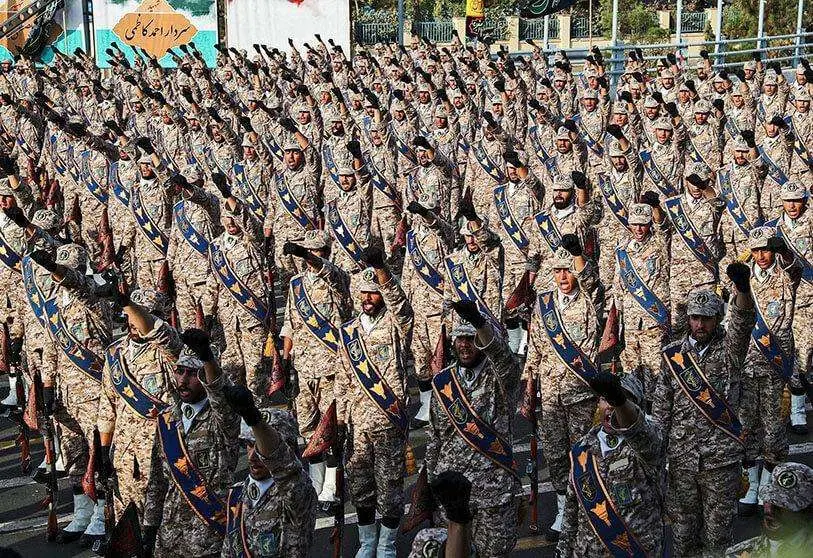Don't feed the crocodile

At the nuclear negotiations underway in Vienna, the Iranian regime has insisted on removing the Islamic Revolutionary Guard Corps (IRGC) from the US list of foreign terrorist organisations (FTOs). The four-decade involvement of the IRGC and its offshore arm, the Quds Force (IRGCQF), in terrorist operations eventually led to its designation as an FTO in April 2019.
When the Revolutionary Guard was created, Islamic Republic officials presented it as a military institution and an armed wing of its government. This is the role that the IRGC has played throughout its life. And at the same time, over time, the conventional army has been weakened or parts of it have been eliminated, but the IRGC has been strengthened.
But the strength of the Revolutionary Guards has increased over its lifetime. According to Rouhani, the former president, the IRGC has become a government with a gun alongside the main government.
The strength of the Revolutionary Guard has increased as it has grown throughout its life. According to former President Rouhani, the IRGC has become a government with a gun alongside the main government.
Through this evolution, the Revolutionary Guard has also evolved from a mere military institution into an economic power. It is said to control more than 60% of Iran's economy. At the same time, the IRGC is a powerful security institution and thus plays an important role in the political arena.
The IRGC was first placed on the List of Specially Designated Nationals and Blocked Persons (SDN List) in December 2007 for supporting Tehran's efforts to acquire weapons of mass destruction. This list was followed by additional sanctions designations under other legal authorities for the IRGC's human rights abuses and acts of terrorism, and in October 2017, the US government designated the IRGC as a Specially Designated Global Terrorist (SDGT). This SDGT designation was imposed under Section 105 of the Countering America's Adversaries Through Sanctions Act of 2017 (CAATSA), which required the US Treasury Department's Office of Foreign Assets Control (OFAC) to extend terrorism-related sanctions under Executive Order 13224 to "foreign persons who are officers, agents, or affiliates of the IRGC."
Since 1979, the use of institutionalised terrorism as a state tool has been a pillar of the clerical regime's survival strategy. From the use of Hezbollah in Lebanon to bomb the US Marine barracks in 1983, the Khobar Towers bombing in Saudi Arabia in 1996, the bombing of the Jewish Community Center in Argentina in 1994, the use of drones to target the Saudi-Aramco refinery in 2019, the downing of a Ukrainian passenger flight in 2020, to name a few, the IRGC's role in direct or proxy state-sponsored terrorism is well documented. In many of the above examples, a common thread is the role of proxy groups recruited, funded, trained and dispatched by the IRGC and its Quds Force. The IRGC is at the heart of the development of nuclear, ballistic missile and drone technology, and the training of proxy forces in the region.
The FTO designation has hindered many of the foreign financial transactions related to the IRGC. For this reason, Tehran has made the removal of the IRGC from the list of FTOs one of its main demands at the Vienna talks; the designation has been effective. It could have been even more effective if complemented by other punitive measures and sanctions.
The IRGC's involvement in the research and development of weapons of mass destruction, its relentless terrorist activities to foment chaos, destruction and instability throughout the Middle East, its financial empire to fund its nefarious activities inside and outside Iran, make this terrorist organisation a serious global threat. Stopping this threat without clipping the IRGC's terrorist wings will not be very effective. If the money flows to the IRGC unimpeded, it will end up in the hands of Hezbollah, Yemen's Houthis, Iraqi Shia militias and other proxies.
The IRGC's other main function is to serve as the regime's main arm for crushing domestic dissent and repressing the Iranian people, as well as to engineer the assassination of Iranian dissidents abroad. Repression at home and terrorism abroad are two sides of the same coin for the IRGC and the foundations of the regime's survival.
With the removal of the Revolutionary Guard from the list, the political and military crisis in the region will undoubtedly worsen. This could lead to increased repression inside Iran and an increase in terrorism in the region, as well as greater Iranian involvement in countries such as Iraq, Lebanon, Syria and Yemen.
Just as the Revolutionary Guards recently launched attacks on oil tankers or made oil tanker shipping lanes unsafe, so too the attack on the UAE airport and the missile launch in Iraq's Erbil were carried out by the IRGC.

